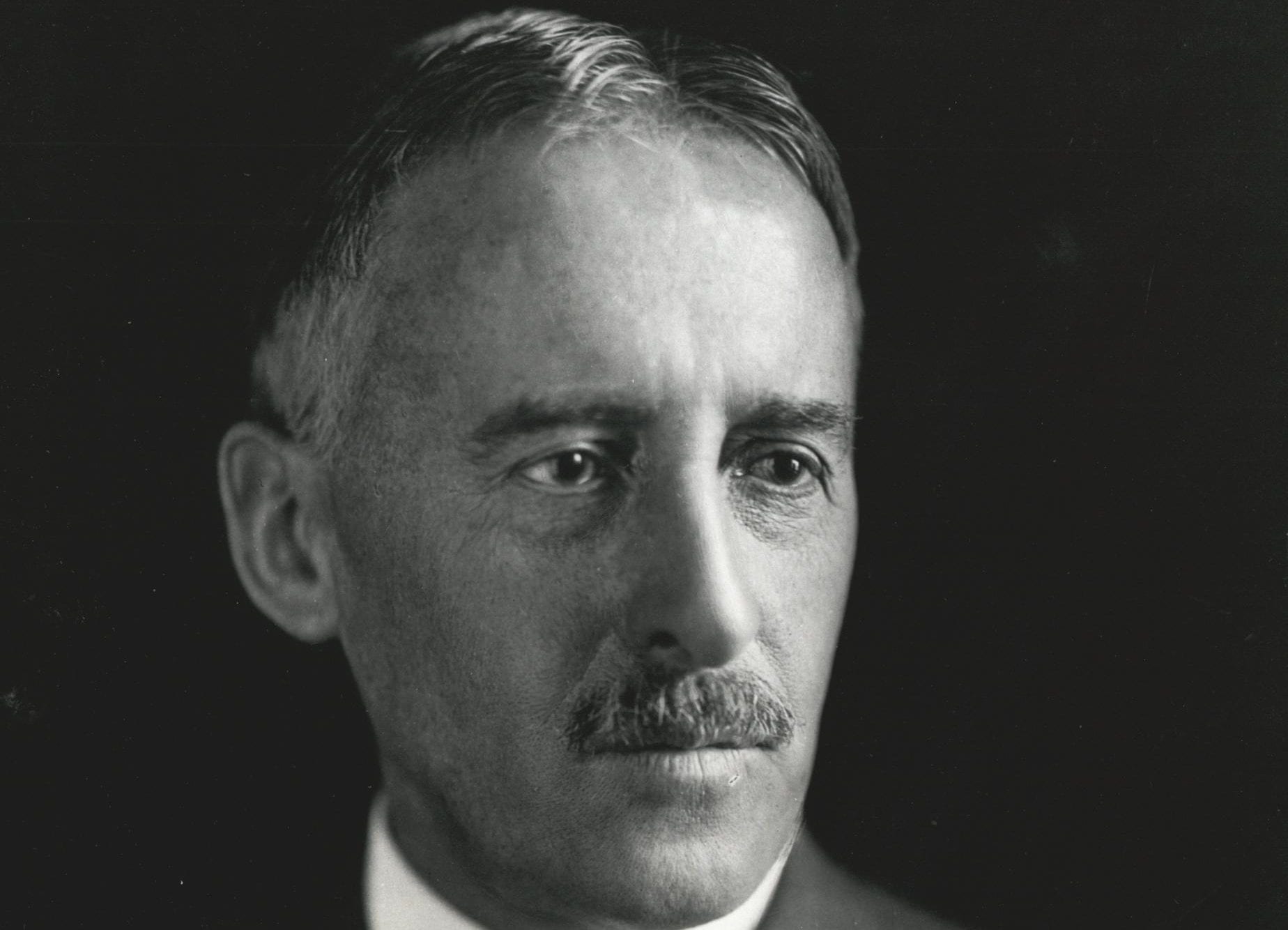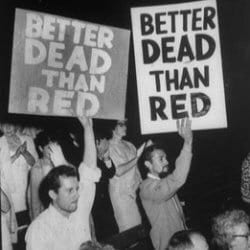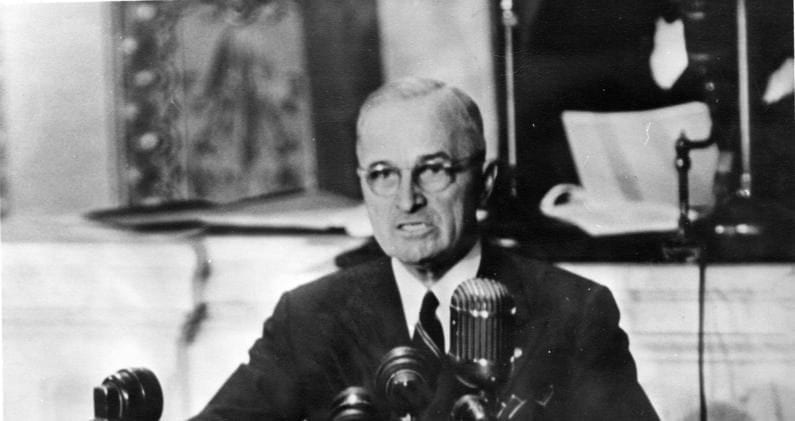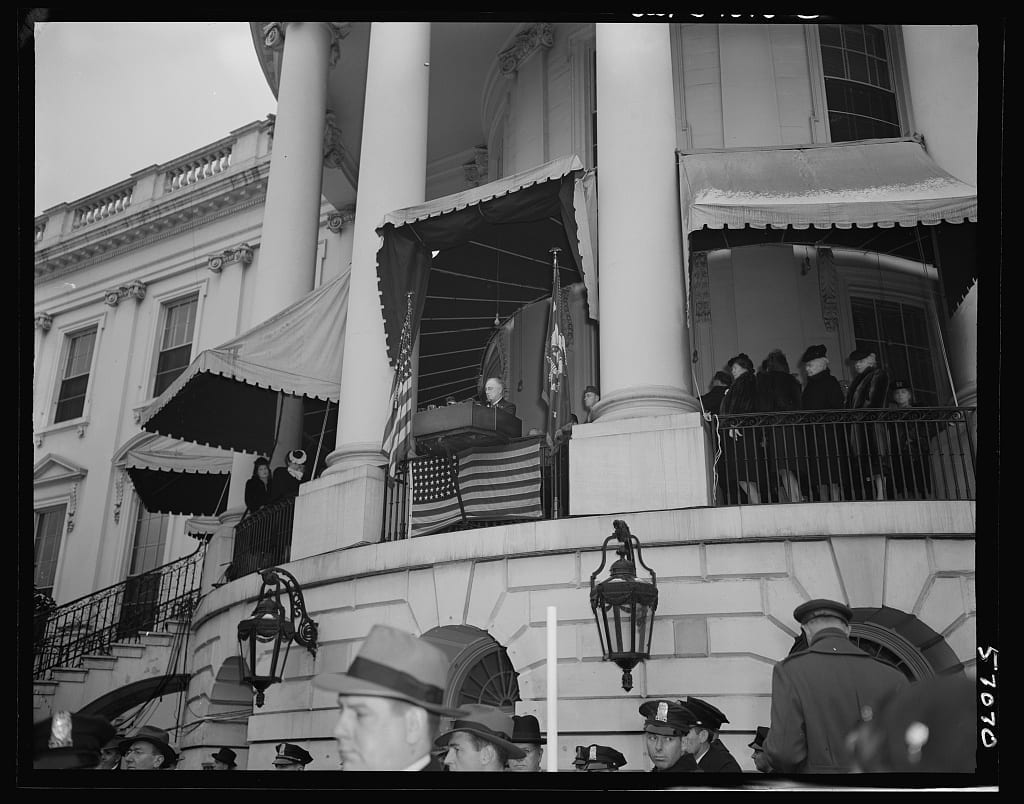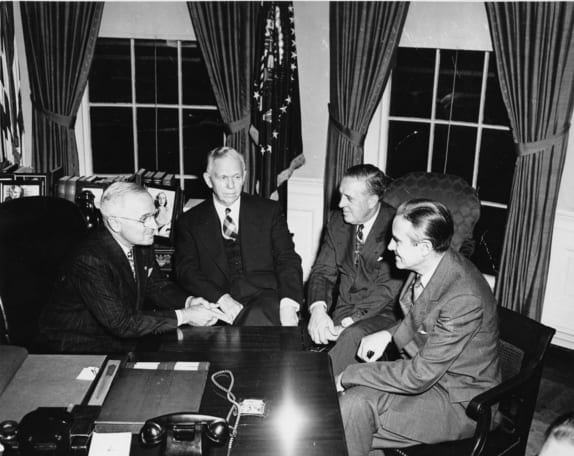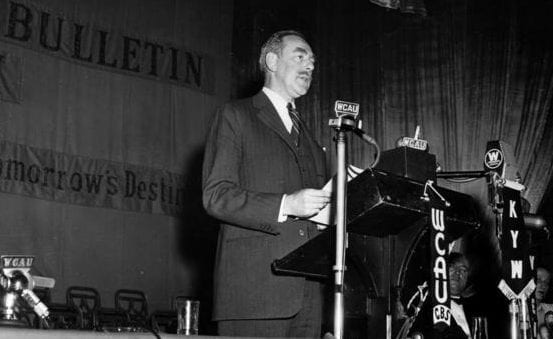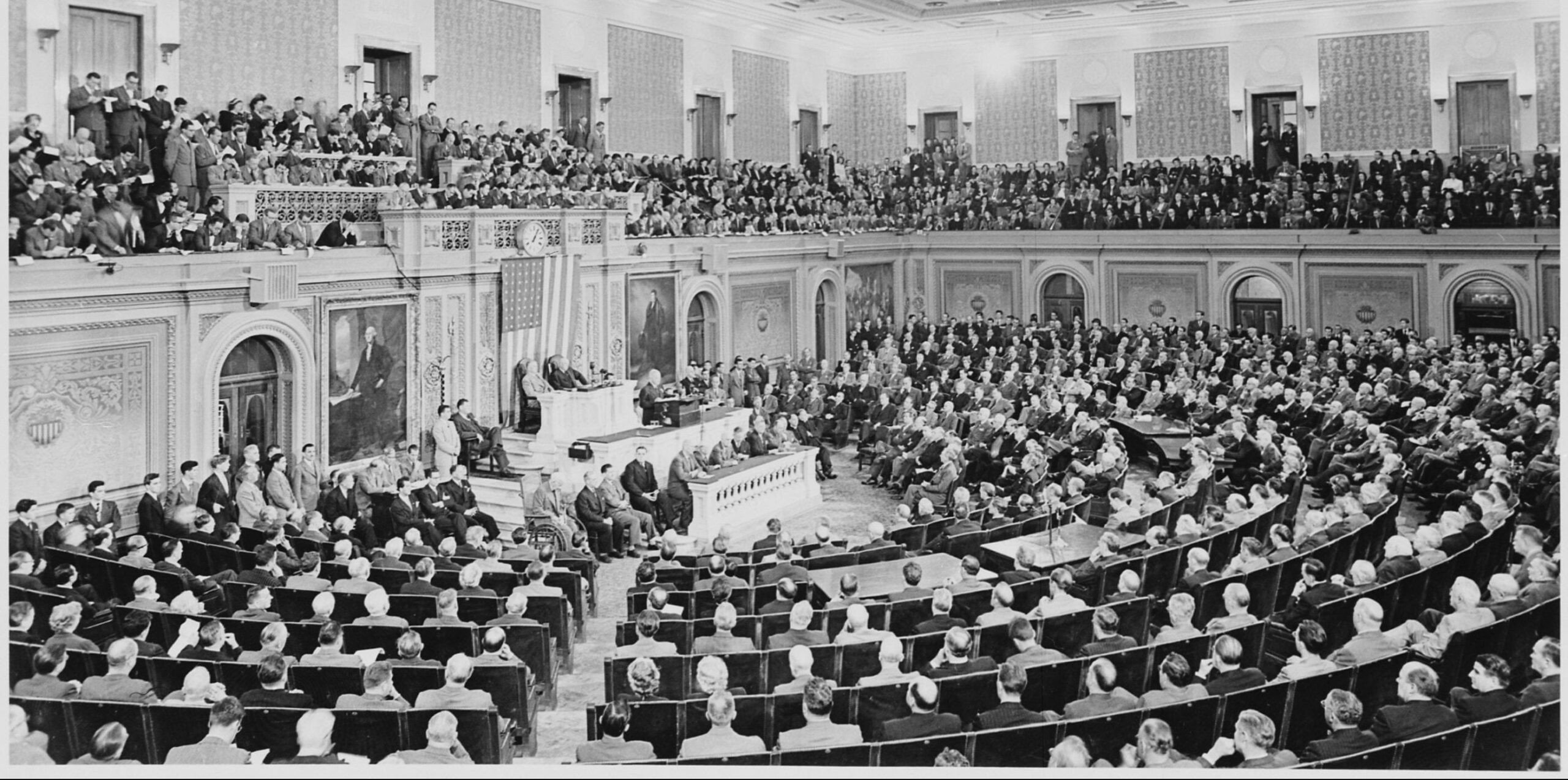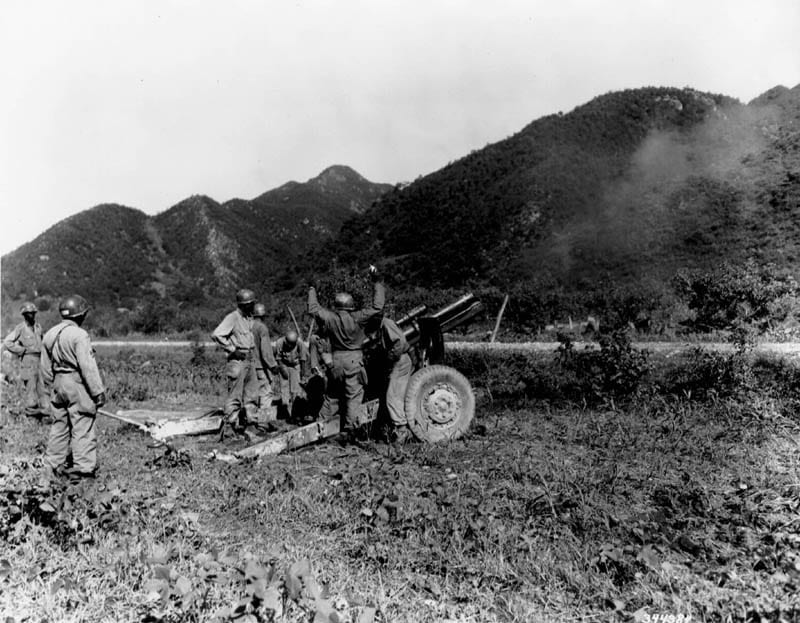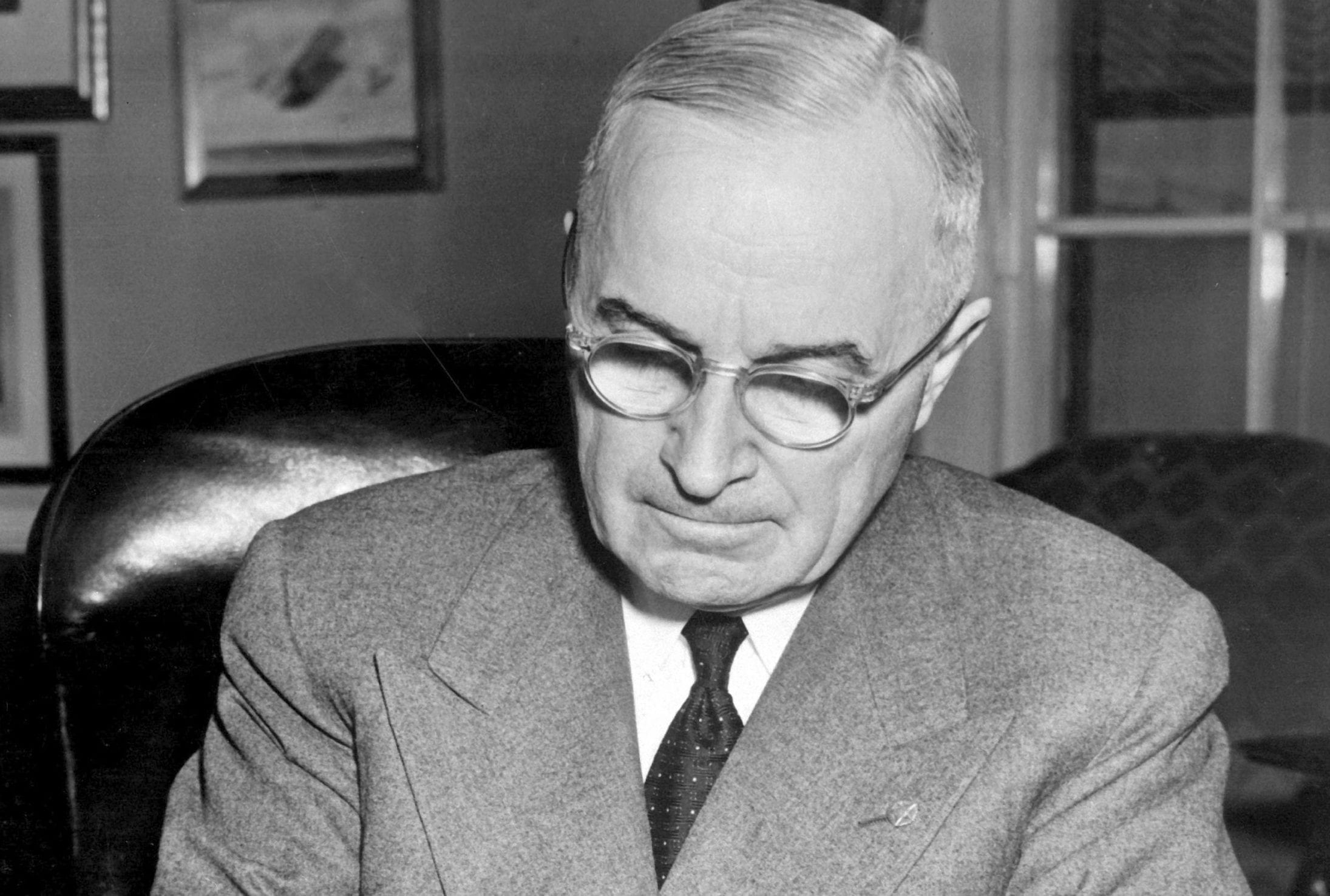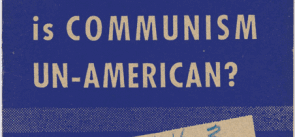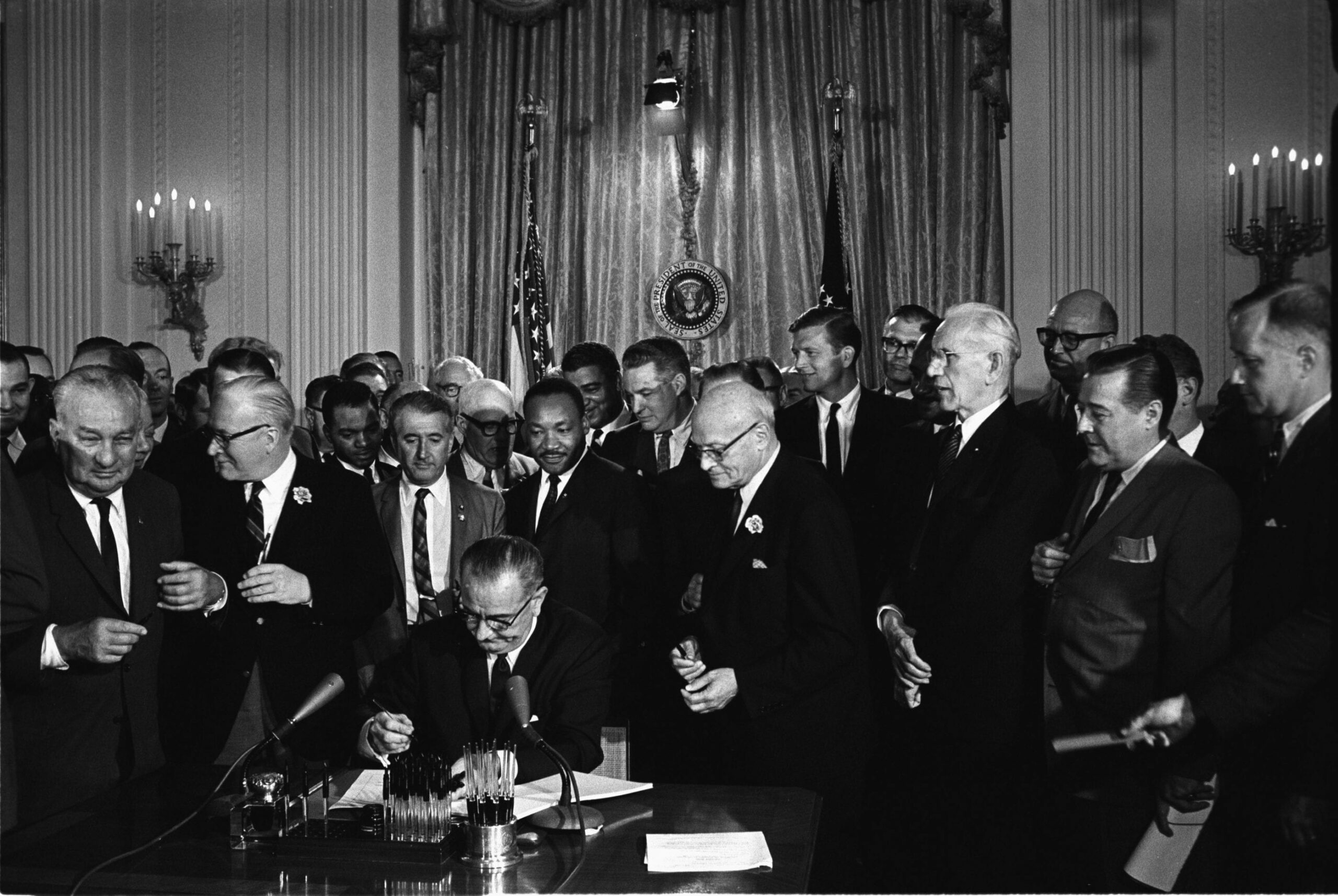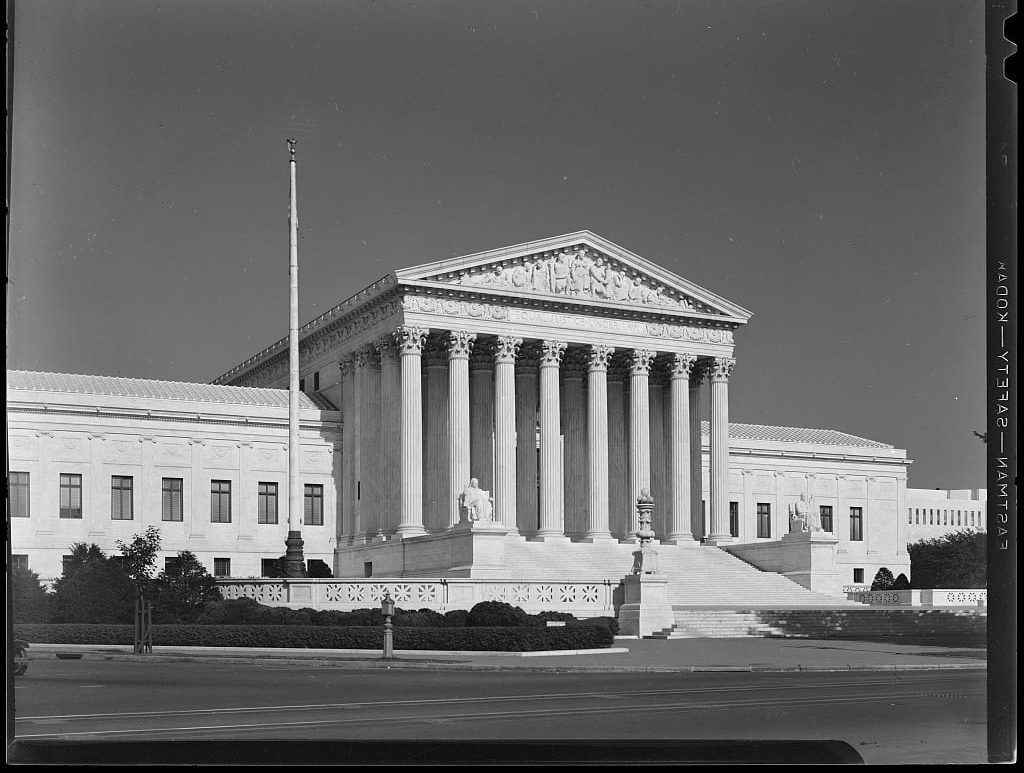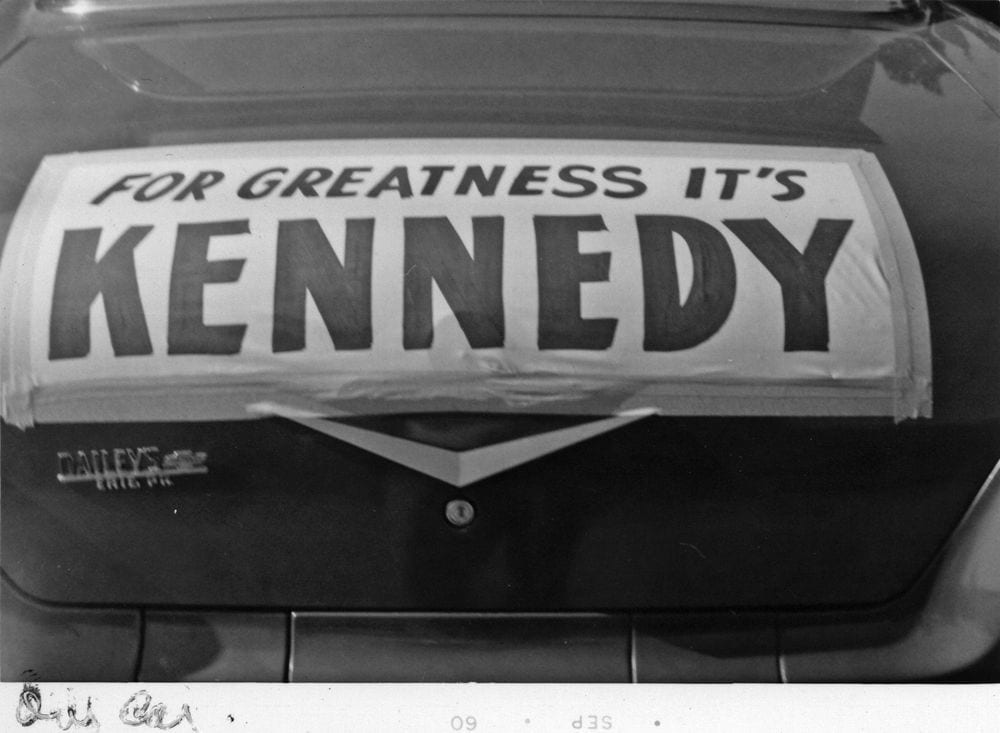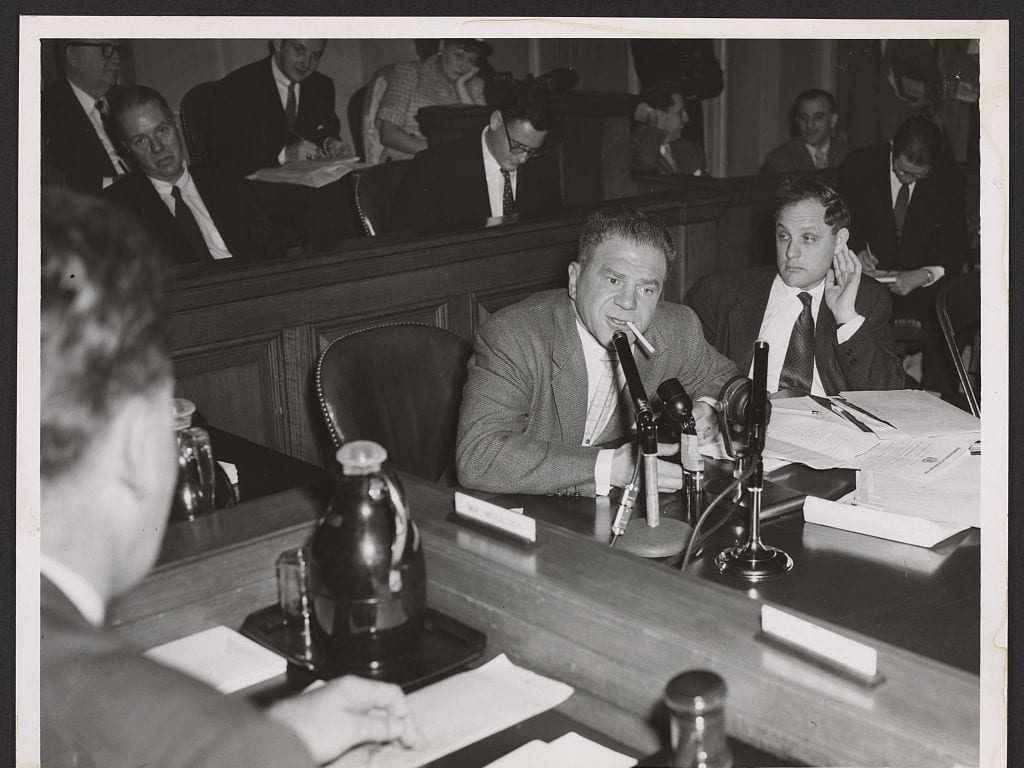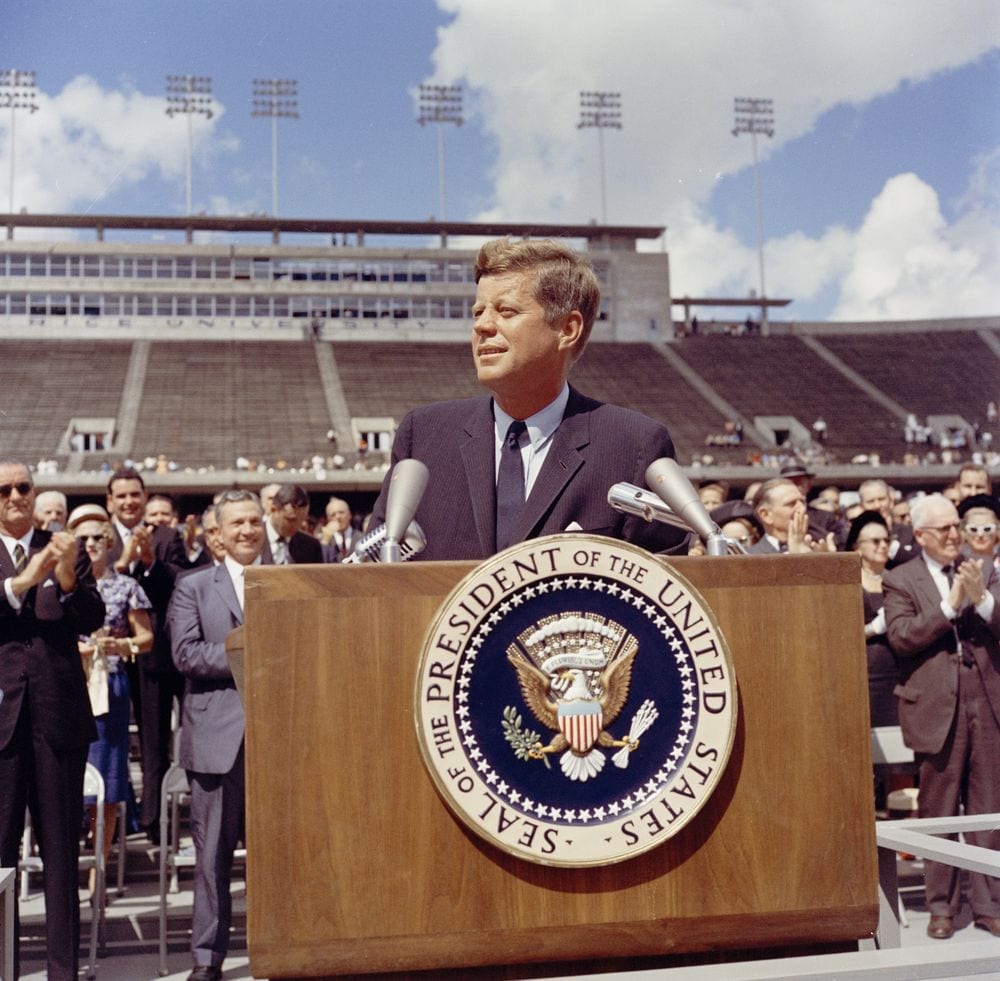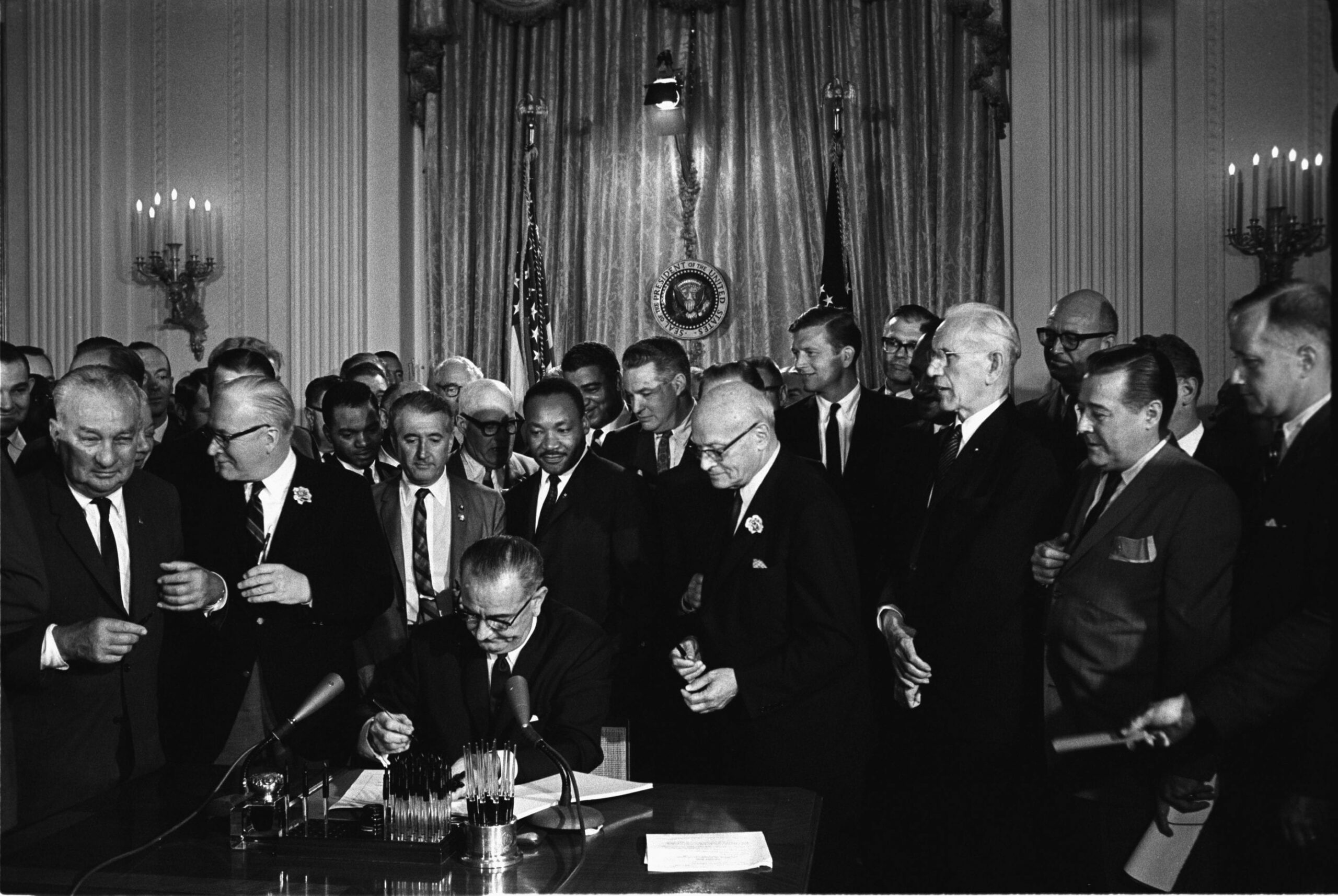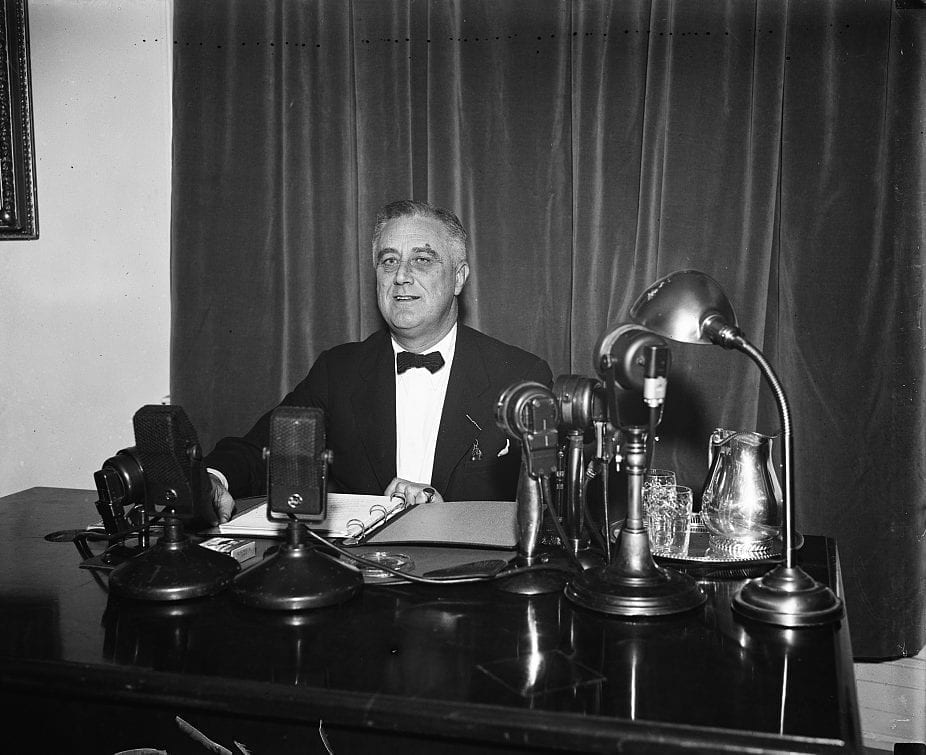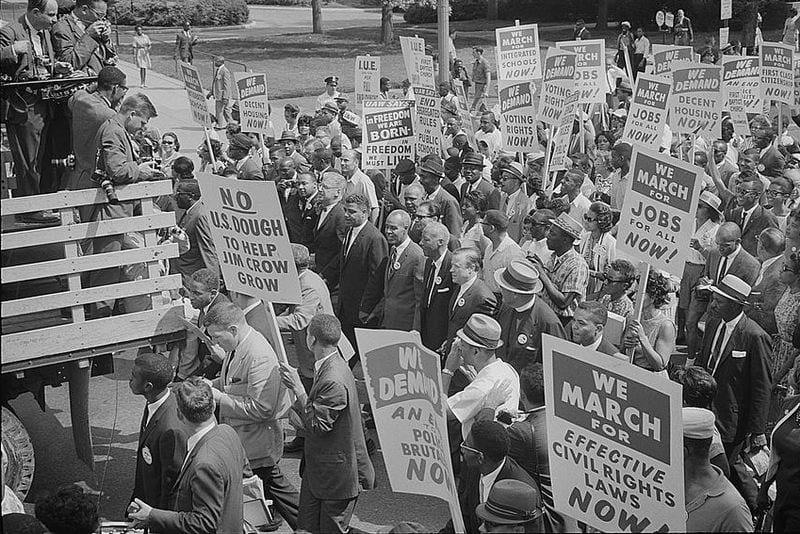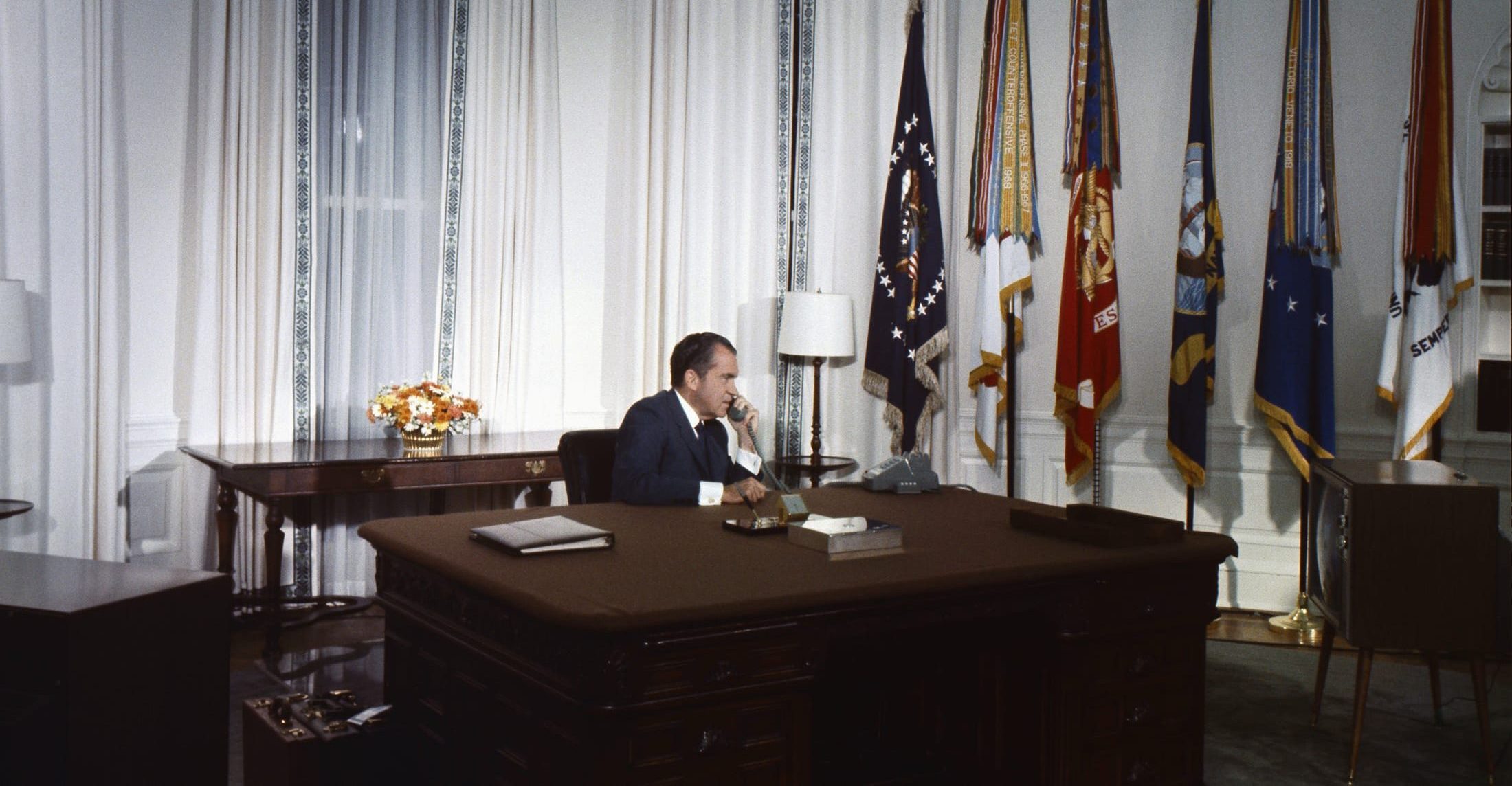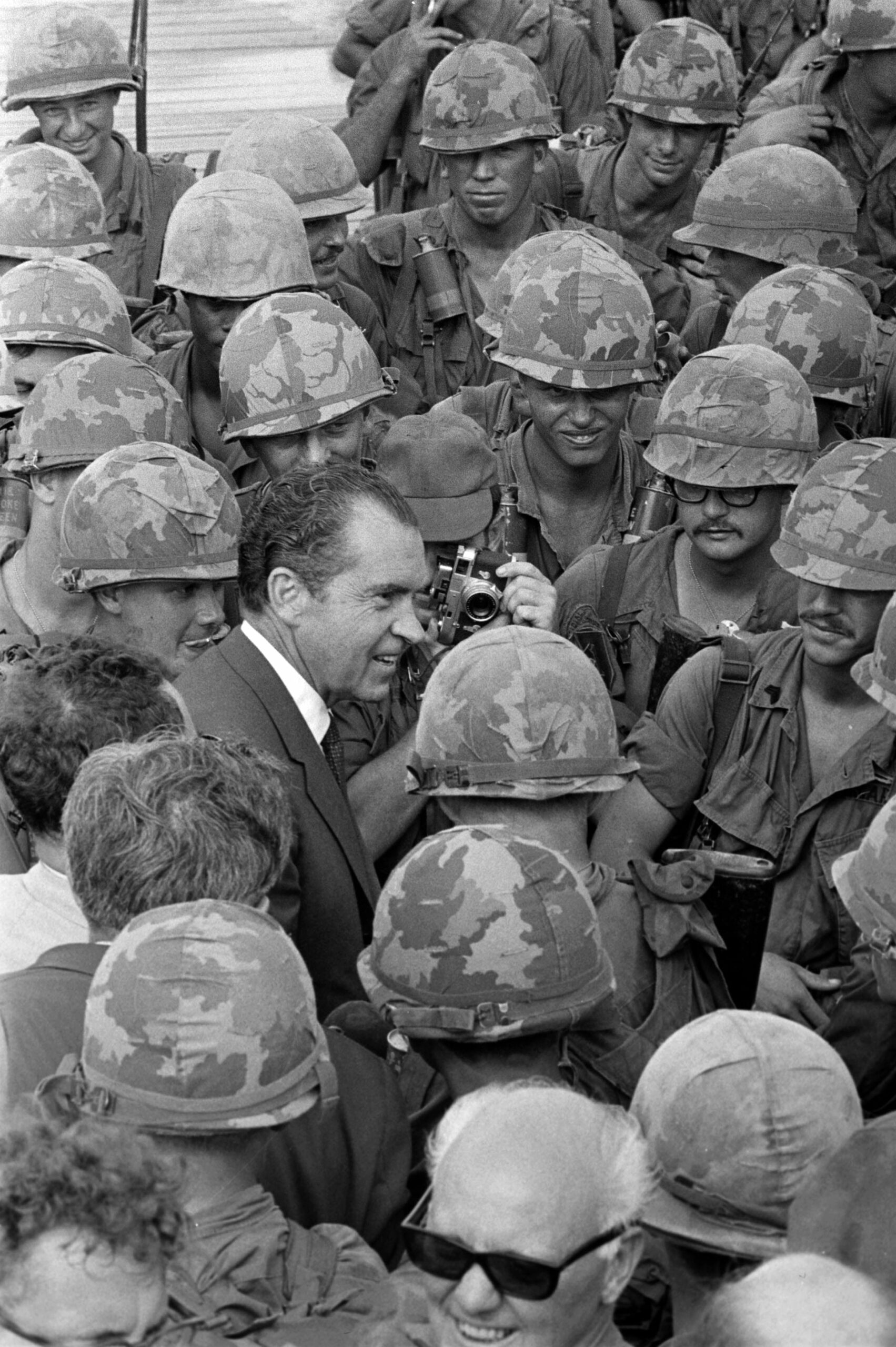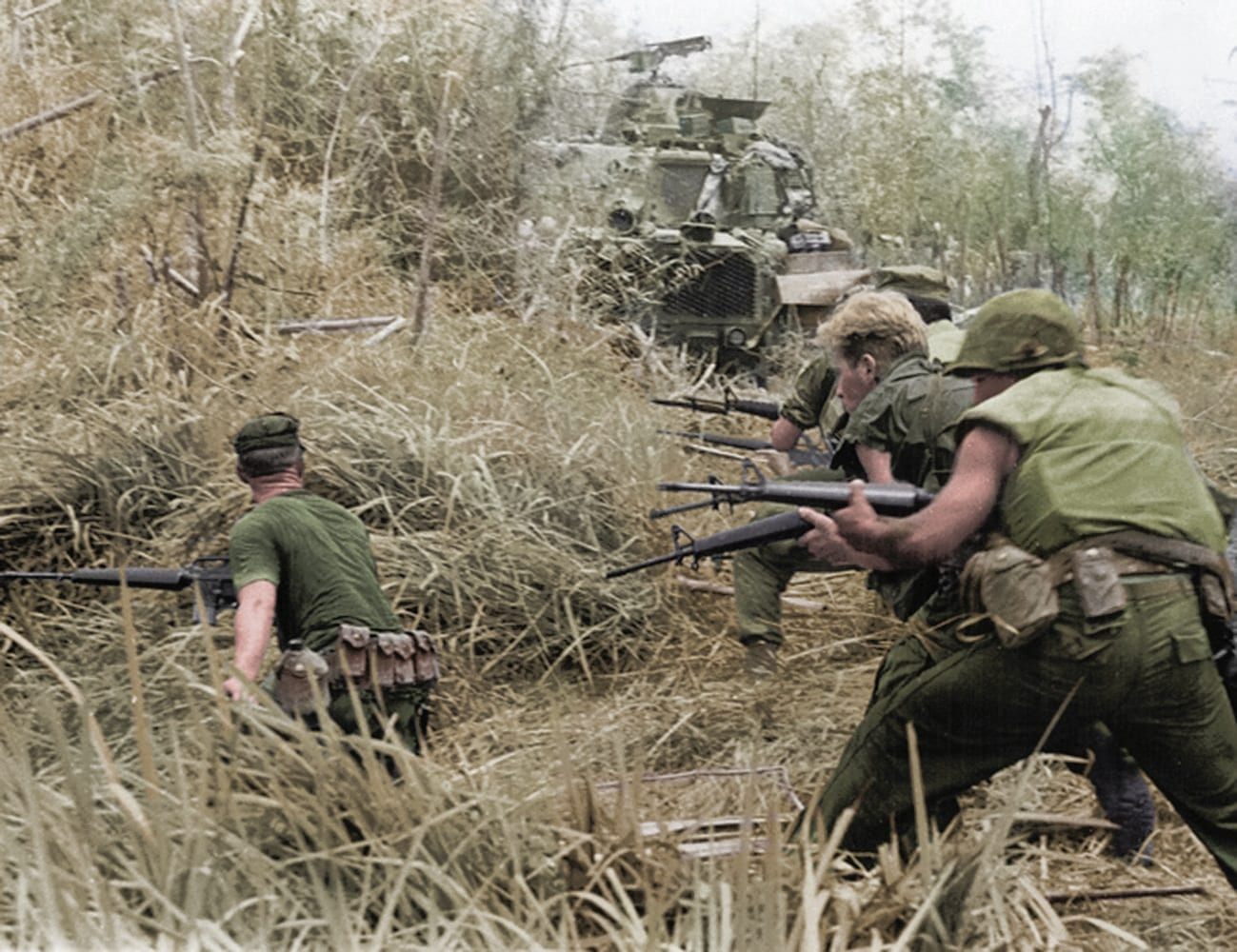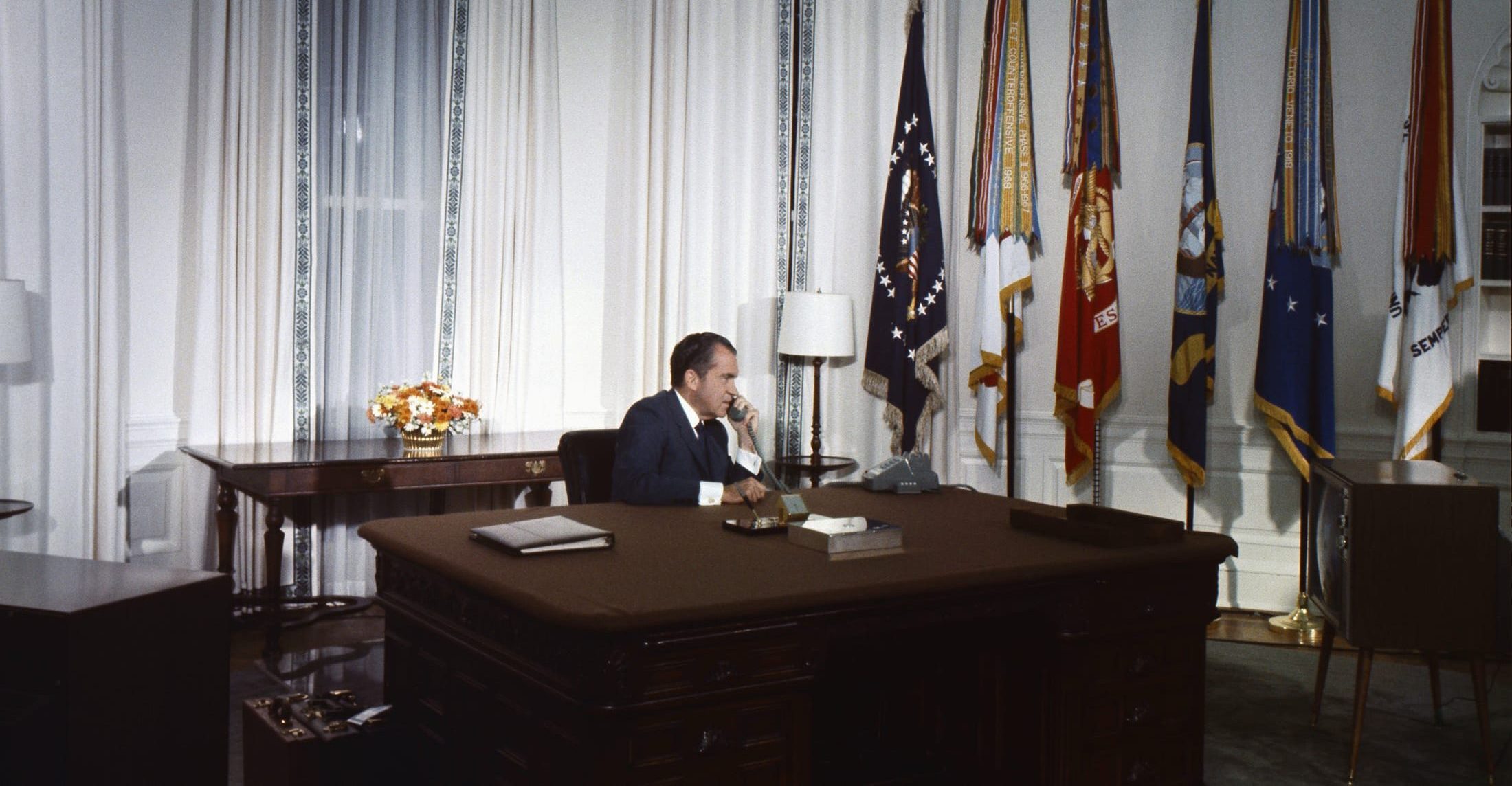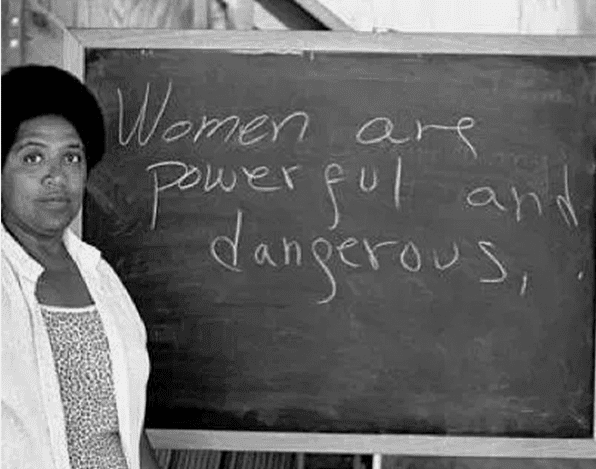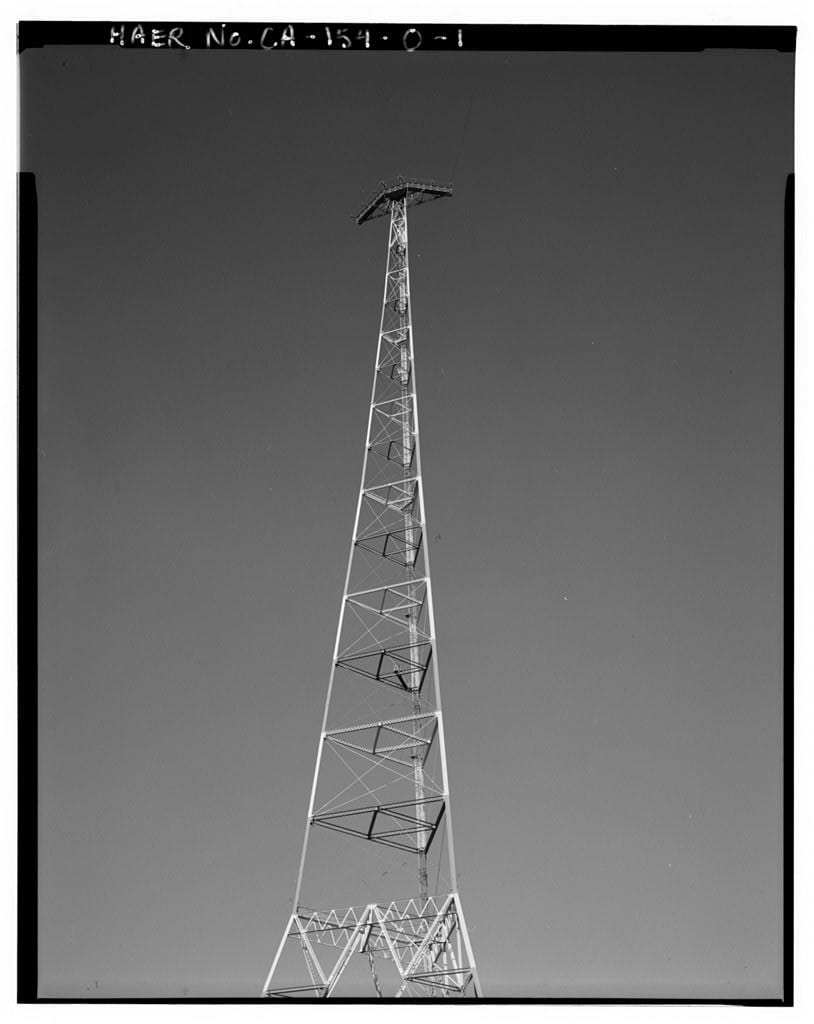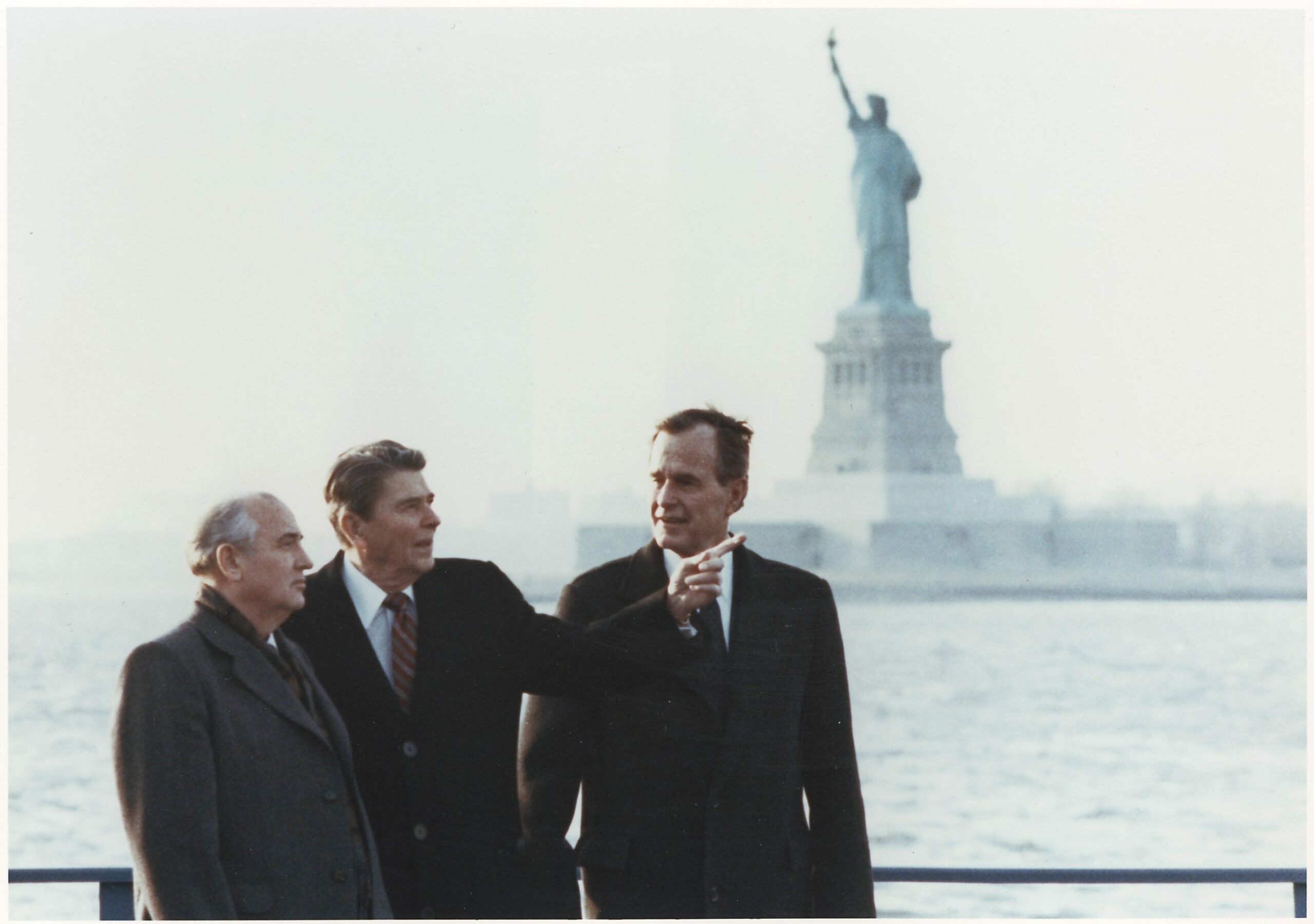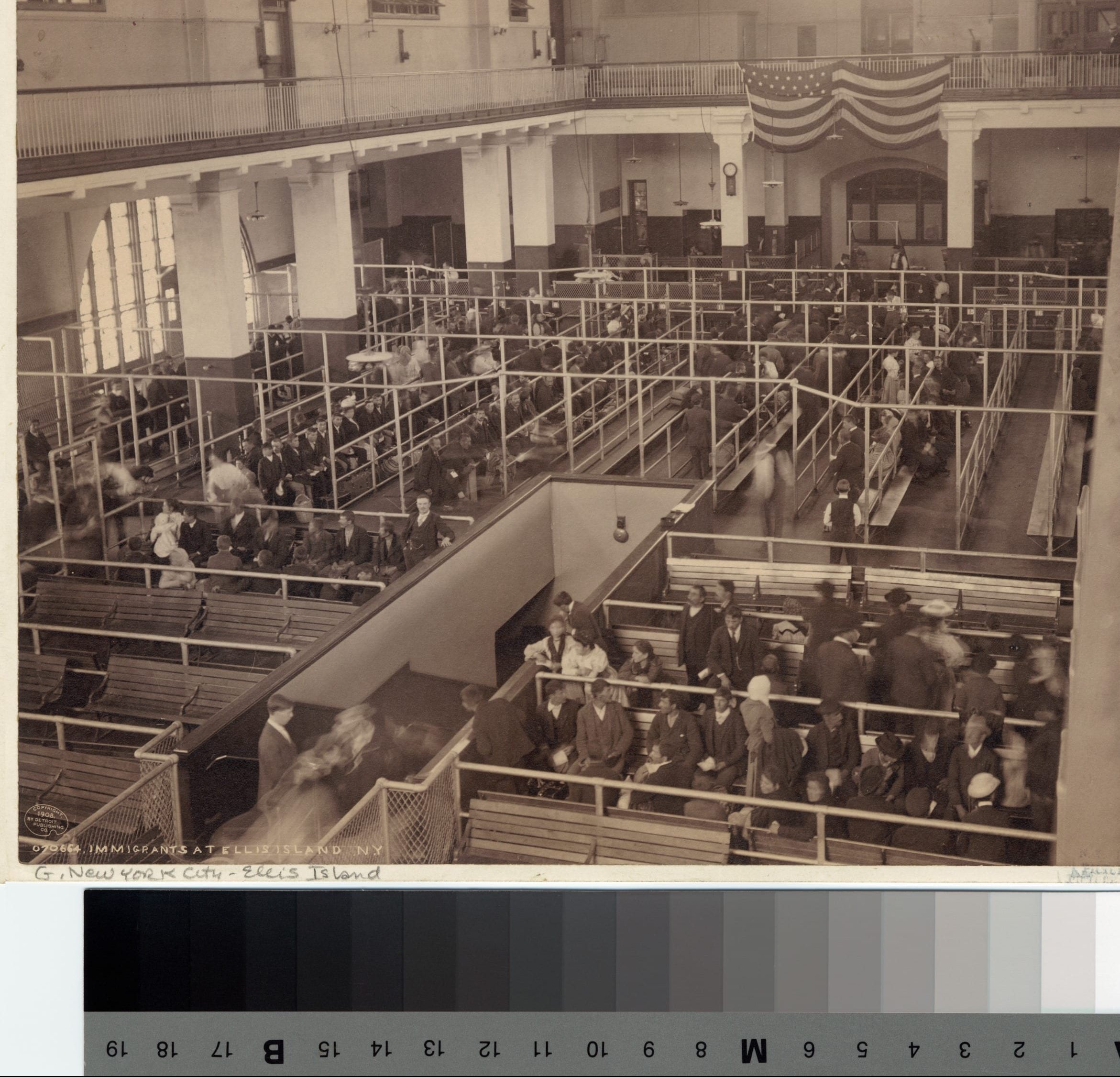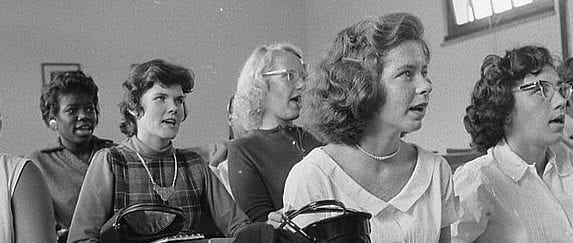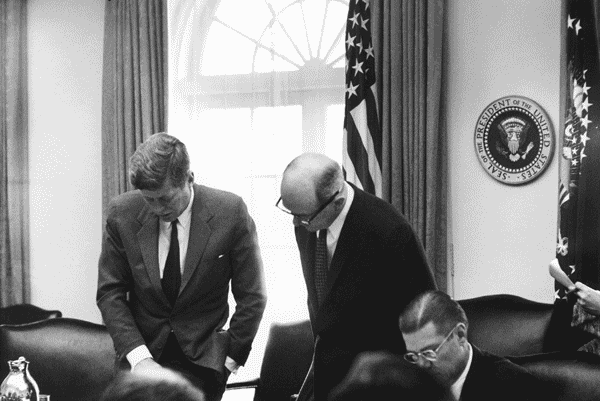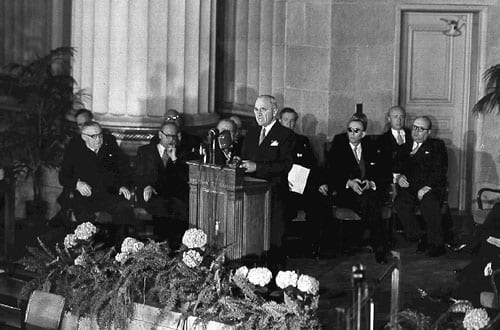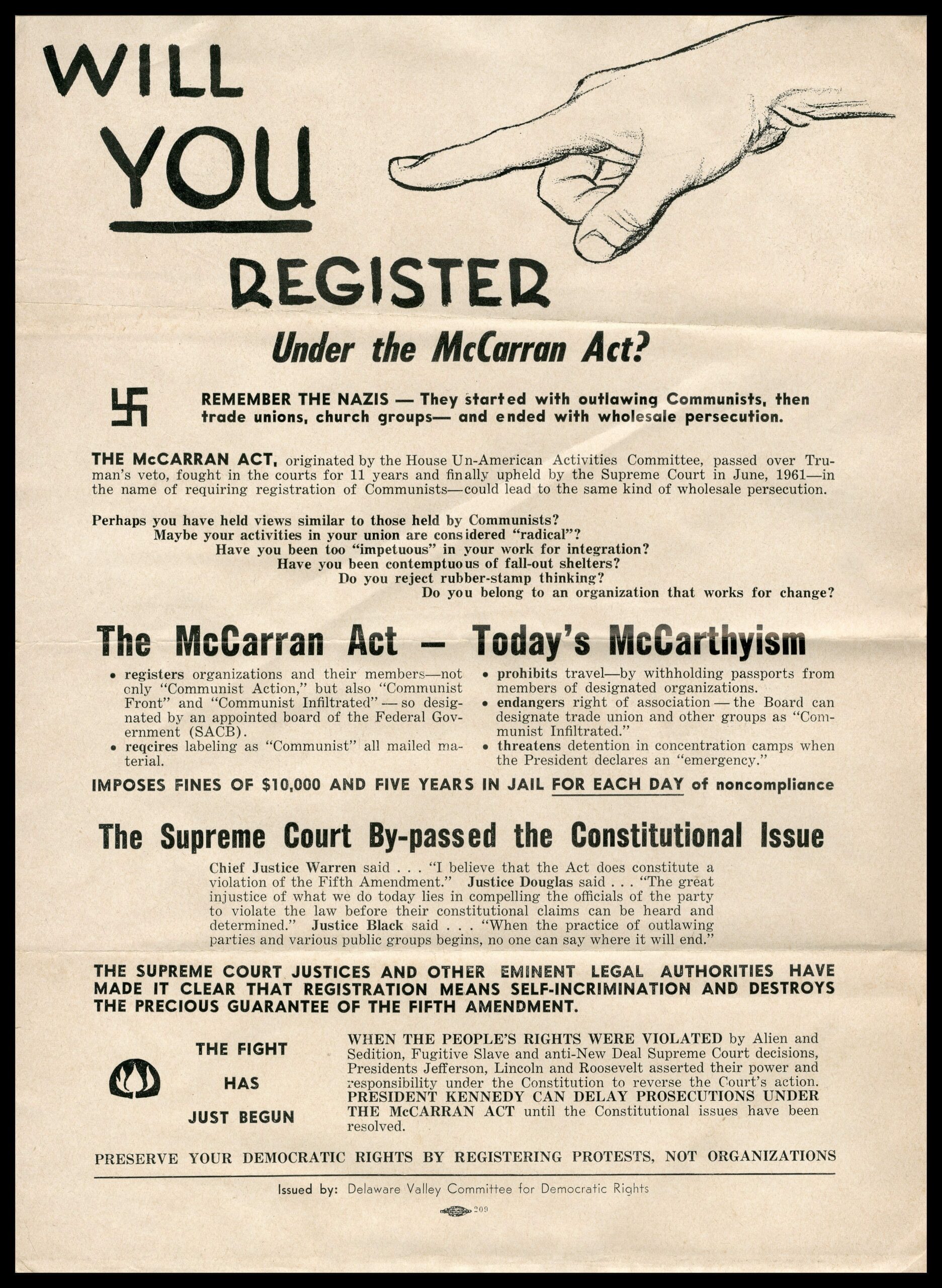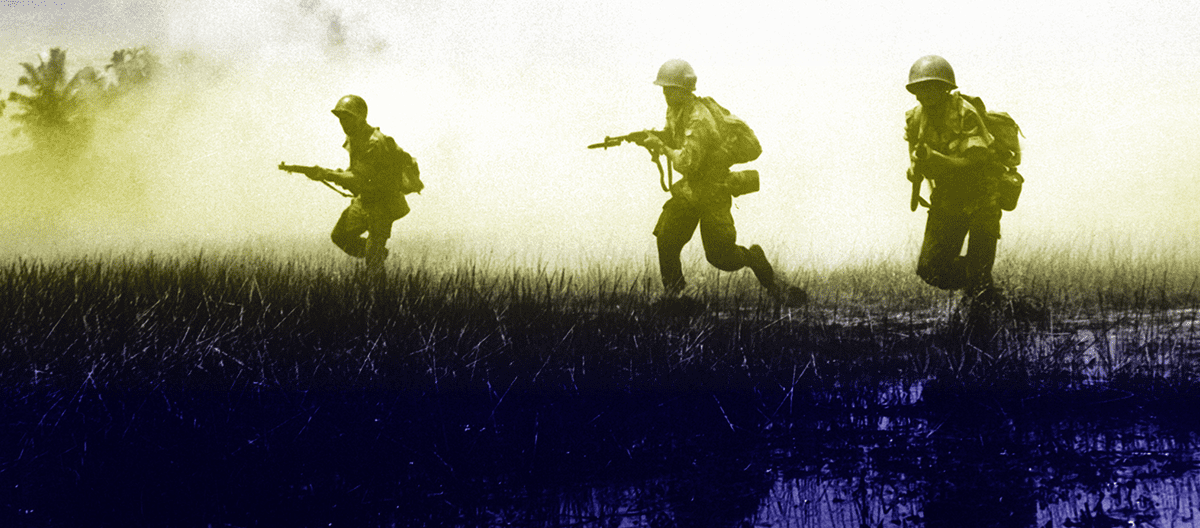

Introduction
On June 25, 1950, the North Korean People’s Army crossed the 38th parallel (the line dividing Korea into U.S.S.R. and U.S. occupation zones). Kim Il-Sung, the leader of North Korea following its establishment in 1948, was backed by the Communist forces of China and the Soviet Union. Conversely, South Korea’s principal support came from the United States. Later that day, the United Nations condemned the North’s invasion of the South. Two days later, on June 27, the United Nations recommended that members assist South Korea in repelling the invasion (this being two months after the UN recommended that the U.S. “contain”’ Communist expansionism). The same day, President Harry Truman ordered that U.S. naval and air forces be dispatched to protect South Korea. Truman referred to the Korean War as a “police action” rather than a war that had to be declared by Congress. Many members of Congress, however, viewed this as an encroachment on Congress’s power to declare war.
Source: Congressional Record, Volume 97, pp. 5078–5088
Mr. MUNDT.[1] Mr. President, either prior to the conclusion of the hearings before the joint committee of the Senate Armed Services and Foreign Relations Committees, or during those hearings, it is hoped that the investigation now taking place will hew to the line with sufficient vigor to provide the American public with clear-cut, consistent and cogent answers to the following three questions which now plague the public generally. . . . There are other questions which should also be answered as a result of these hearings, but it is important to our war effort and to the morale of both the free world and the United States that we get answer to the following three questions: (1) Who put us into the Korean War and by what legal authority? (2) What were the terms defining our military mission in Korea at the time the fighting began? (3) How are our military leaders and the American public to know when the job in Korea is done and the war is over? In other words, what is our war target in Korea?
One of the amazing and at the same time terribly disturbing features of our war in Korea is the great confusion which seems to exist over the method by which the United States become involved in the war and the legal basis upon which the president of the United States, acting on his own authority and without a declaration of war by Congress, could plunge us into what has already become the fourth most costly war in our nation’s history. A careful study of the constitutional powers of the president as well as the charter of the United Nations tends to make it more difficult rather than easier to understand and accept some of the public explanations of our high government officials in this connection. About the only fact that stands out incontrovertibly is the fact that the war in Korea was never declared by the Congress of the United States and that whatever the legal basis may be for our involvement in that conflict, it was not by any action whatsoever of the American Congress.
In times past, some American presidents have involved the fighting forces of this country in minor skirmishing abroad or in short-lived small wars by executive action.[2] Up to now, however, these have always been justified as a military venture ordered by the president in defense of either the lives or property of America or in fulfillment of treaty into by this country through constitutional processes. It appears that neither of these justifications is applicable to the war in Korea in which we were involved by the action of President Truman last June.
It might be helpful for all of us as we look ahead to the future and try to determine as optimum program for bringing an early and victorious end to the war in which we are now so bloodily involved if we were to review objectively and dispassionately the actual steps and the legal circumstances, if any, by which we were involved in this war by presidential action. That is to be my purpose here this afternoon. In studying the chronology of the conflict and our entrance into it, some very interesting evidence is available. . . .
Thus, it appears, Mr. President, that the relationships of the United Nations with regard to the United States in the first stages of the war in Korea were something like those existing between a man and a bulldog he might have happened to own. In substance, the United Nations said “Sic ‘em” to Uncle Sam and away we went to war. We are now engaged in a bloody war with well over 60,000 casualties.[3] It is a war which has become America’s responsibility to win or to lose. It is a war which has never been declared by Congress through any of our constitutional processes and it is by all odds the most costly and the bloodiest undeclared war in our American history. For better or for worse, America was involved in it by the unilateral action of the president acting without consultation with Congress and without its authorization. This is a warning sign which clearly demonstrates what can happen in this closely knit and tempestuous world if we are to accept as permanent and standing operating procedure the dictum that the president can rightfully involve this country in a shooting war to which we are not committed by treaty obligations, which is of major size and of long endurance, and on which he has neither consulted with Congress nor asked it to declare war in accordance with out ancient and honorable constitutional procedures. . . .
That seems to indicate in clear and understandable language that at the time the Communists crossed the thirty-eighth parallel the United States had no treaty obligation and no commitment under the United Nations requiring it to send American boys into war at the request of the [United Nations’] Security Council. The Security Council could say “Sic ‘em” to our “American dog,” but it could not compel us to go to war, and we had no obligation binding us to do so.
It also seems to demonstrate with dramatic clarity that when such troops were sent to war by order of the President they entered the war as American forces. It is the primary purport of my address to try to clear up the confusion which is confounding America as to what is the status of the American boys in Korea. It is too late now to get them out by easy effort. It is too late now to say the president should first have consulted the Congress, too late to say the president could have called in a concert of like-minded free nations in the United Nations, at Lake Success,[4] and could have said to them, “We will send our boys into Korea to help throw the Communists back beyond the thirty-eighth parallel, provided you join us in an effort commensurate with your strength.”. . .
But it is not too late for the American people to find out how this war began, not too late to dissipate the fog of confusion as to who should give the orders to the American troops in Korea, and whose present responsibility it is. . . .
[W]hen President Truman ordered American boys into the war in Korea, they entered that war as American forces, under the command of American officers, at the order of an American President. . . .
It is not difficult to ascertain who is responsible for the bloody slaughter in Korea. . . . [E]veryone agrees that we are at war. But we are not at war because of legal compulsions and treaty obligations assumed by the passage of the Participation Act which made this country a member of the United Nations. We are at war by the proclamation of President Truman of the United States. . . .
Mr. President, I have said that since we are in this war by a curious extralegal presidential device, and consequently are calling upon other countries voluntarily to contribute soldiers and sailors and equipment to aid in this effort, we should be thankful for the assistance we have gotten from Canada, from Turkey, and from Great Britain, even though we are regretful that that assistance has been so meager and so small. But none of them is mandatorily committed to do anything in a venture of this kind, because in the United Nations Charter as of now, there is no mandatory provision by means of which any of them can correctly be called upon to supply troops and equipment. . . .
President Truman and his administration cannot and must not be permitted to say that this is solely a United Nations enterprise. It cannot and must not be left to the United Nations to determine the terms under which our brave American boys are going to die, and the degree of hazards to which they are to be subjected. This is a fact which appears to be recognized by our present secretary of state, Dean Acheson[5], although the secretary seems to be very reluctant and timid about proclaiming that recognition so that it can be clearly understood by the general public. However, I am deeply indebted to my newest colleague in Congress from South Dakota, Rep. E. Y. Berry[6], from the second district of our state, for having produced some specific information on the nature of the Korean war as Secretary Acheson describes it in his correspondence with a member of Congress. . . .
Of primary importance, however, Mr. President, is the fact that this letter from Secretary of State Acheson of April 17 confirms completely the thesis I have been discussing this afternoon, and confirms the conclusions I have drawn from a research made from the beginning of the United Nations Charter and the Participation Act, and tracing its whole course of progress through the Congress. The Acheson letter makes doubly clear the fact that the war in Korea has become an American responsibility and that American leadership must be exercised courageously, intelligently, effectively, and promptly, in order to bring the war to an early and honorable conclusion.
- 1. Karl Mundt, a Republican from South Dakota, served as a representative from 1939–1948 and senator from 1948–1973. Mundt was a member—and ranking member—of the Committee on Government Operations and chair of its Permanent Subcommittee on Investigations. He was a loyal supporter of Joseph McCarthy and an ardent opponent of communism.
- 2. See, for instance, the discussion of the Caroline affair in Debate on the Constitutionality of the Mexican War, footnote 7.
- 3. The Korean War ended in July of 1953, over two years after this debate. The number of casualties in the war has never been precisely determined. According to the Department of Defense, approximately 36,500 Americans died in the Korean War, and more than a million military casualties were suffered by China, North Korea, and South Korea combined. In addition, there were over a million civilian casualties among North and South Korea combined.
- 4. Lake Success, NY, is a village located in Long Island, that served as the home of the United Nations from 1946–1951 while the headquarters were being built in New York City.
- 5. Dean Acheson (1893–1971) was secretary of state from 1949–1953, during the Truman presidency. An important figure in the history of the Cold War, he is credited with playing an important role in developing Truman’s foreign policy, and is generally believed to have convinced President Truman to enter the Korean War.
- 6. Ellis Yarnal Berry (1902–1999) was a member of the House of Representatives from South Dakota’s second district from 1951–1971.
Dennis v. United States
June 04, 1951
Conversation-based seminars for collegial PD, one-day and multi-day seminars, graduate credit seminars (MA degree), online and in-person.

